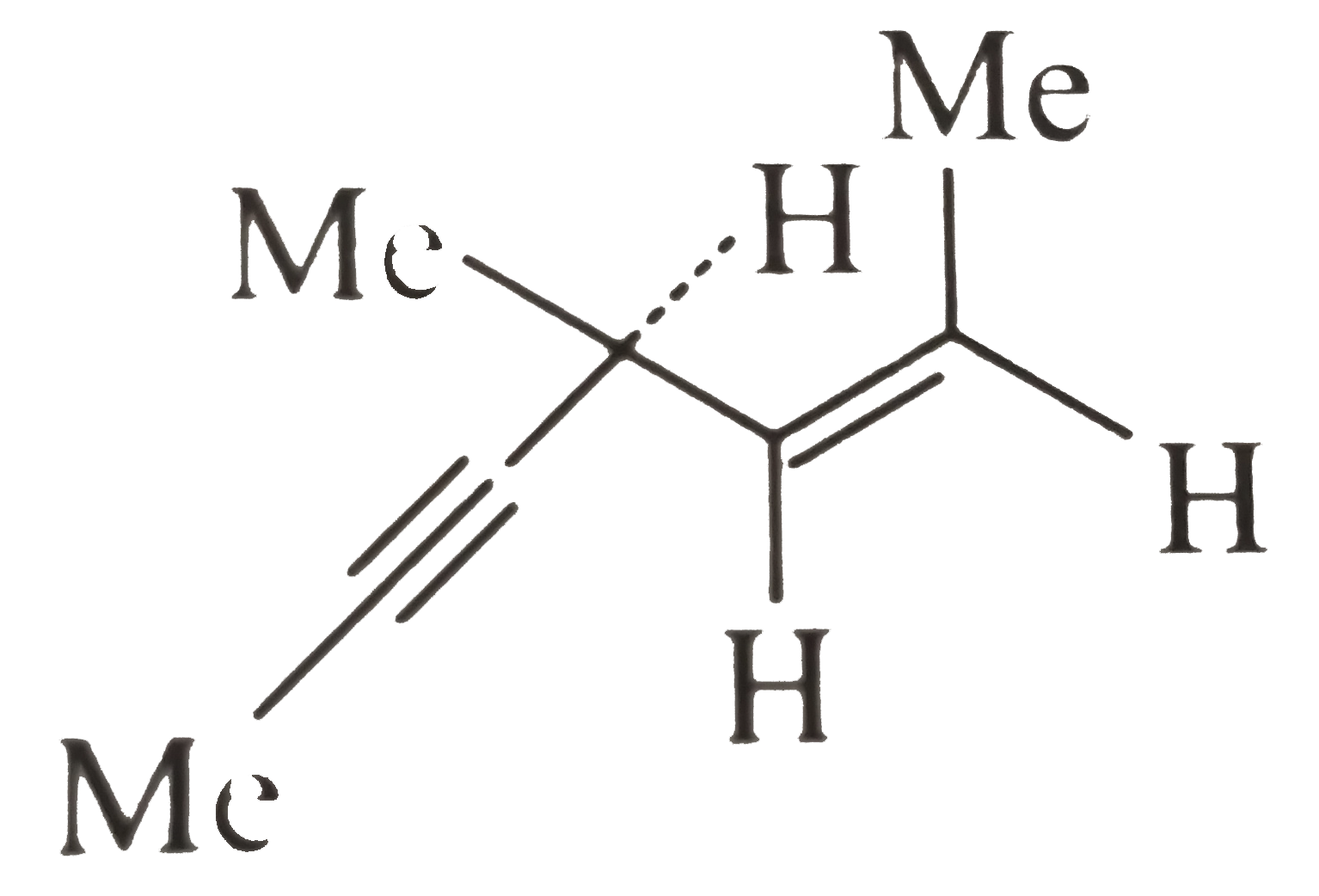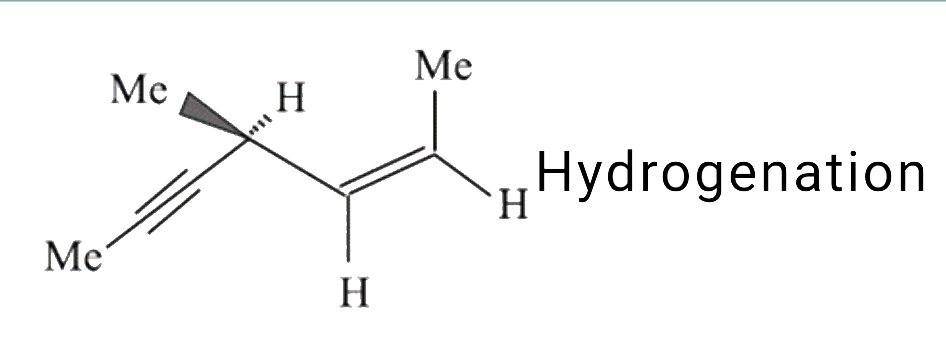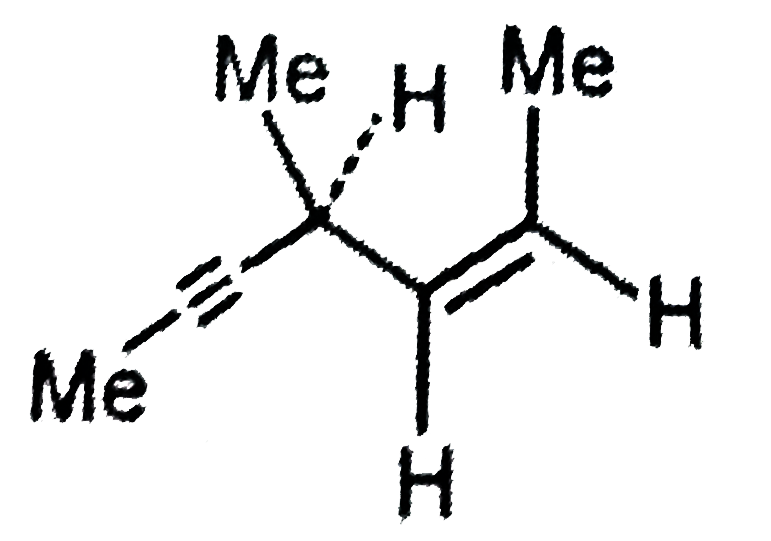Hydrogenation of benzoyl chloride in the presence of Pd on BaSO4 gives
Benzyl alcohol
Benzaldehyde
Benzoic acid
Phenol.
The correct Answer is:B
To solve the question regarding the hydrogenation of benzoyl chloride in the presence of palladium on barium sulfate (Pd/BaSO4), we can follow these steps:
1. Identify the Reactant: The reactant in this reaction is benzoyl chloride (C6H5COCl). It consists of a benzene ring (C6H5) attached to a carbonyl group (C=O) and a chlorine atom.
2. Understand the Reaction Conditions: The reaction is carried out in the presence of hydrogen gas (H2) and a catalyst, which is palladium on barium sulfate (Pd/BaSO4). This catalyst is often used in selective hydrogenation reactions.
3. Reaction Mechanism: In the presence of hydrogen and the catalyst, the chlorine atom in benzoyl chloride is replaced by a hydrogen atom. This process involves the addition of hydrogen across the carbonyl group, leading to the formation of an aldehyde.
4. Formation of the Product: The product formed from this reaction is benzyldehyde (C6H5CHO). The chlorine atom is replaced by a hydrogen atom, and the carbonyl group remains intact.
5. Name of the Reaction: This specific reaction is known as the Rosenmund reduction, which is a method to convert acyl chlorides to aldehydes using hydrogenation.
Final Answer:
The hydrogenation of benzoyl chloride in the presence of Pd/BaSO4 gives benzyldehyde (C6H5CHO).
---
The hydrogenation of benzoyl chloride in the presence of Pd/BaSO4 gives benzyldehyde (C6H5CHO).
Topper's Solved these Questions
- BOOK - ICSECHAPTER - ALDEHYDES, KETONES AND CARBOXYLIC ACIDSEXERCISE - EXERCISE (PART-II DESCRIPTIVE QUESTIONS) (VERY SHORT QUESTIONS)282videos
ALDEHYDES, KETONES AND CARBOXYLIC ACIDS
- BOOK - ICSECHAPTER - ALDEHYDES, KETONES AND CARBOXYLIC ACIDSEXERCISE - EXERCISE (PART-II DESCRIPTIVE QUESTIONS) ( SHORT QUESTIONS)581videos
ALDEHYDES, KETONES AND CARBOXYLIC ACIDS
- BOOK - ICSECHAPTER - ALDEHYDES, KETONES AND CARBOXYLIC ACIDSEXERCISE - EXERCISE (PART-II DESCRIPTIVE QUESTIONS) ( LONG ANSWER QUESTIONS)478videos
ALDEHYDES, KETONES AND CARBOXYLIC ACIDS
- BOOK - ICSECHAPTER - ALCOHOLS, PHENOLS AND ETHERS EXERCISE - ISC EXAMINATION QUESTIONS25videos
ALCOHOLS, PHENOLS AND ETHERS
- BOOK - ICSECHAPTER - APPENDIX II ( TYPICAL CONVERSIONS)EXERCISE - AROMATIC CONVERSIONS98videos
APPENDIX II ( TYPICAL CONVERSIONS)
Similar Questions
Knowledge Check
- Question 1 - Select One
The reduction of benzoyl chloride with H2/Pd−BaSO4 produces
Abenzoic acidBbenzyl alcoholCbenzoyl sulphateDbenzaldehyde.
Name the electrophile produced in the reaction of benzene with benzoyl chloride in the presence of anhydrous AlCl3. Name the reaction also.
View SolutionWrite chemical equations for the following reactions:
(i) Propanone is treated with dilute Ba(OH)2
(ii) Acetophenone is treated with Zn (Hg)/Conc. HCI
(iii) Benzoyl chloride is hydrogenated in presence of Pd/BaSO4.View SolutionThe reaction of toluene with chlorine in the presence of ferric chloride gives mainly
View SolutionBenzene reacts with n-propyl chloride in the presence of anhydrous AlCl3 to give predominantly
View Solution
Hydrogenation of the above compound in the presence of poisoned Pd catalyst gives:View Solution Hydrogenation of the above compound in the presence of sodium in liquid ammonia gives - View Solution
Hydrogenation of the above compound in the presence of sodium in liquid ammonia gives - View SolutionHydrogenation of the adjoining compound in the presence of poisoned palladium catalyst gives.
 View Solution
View Solution

